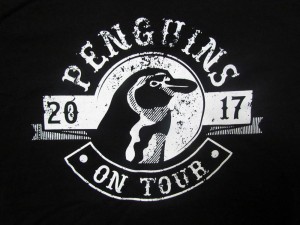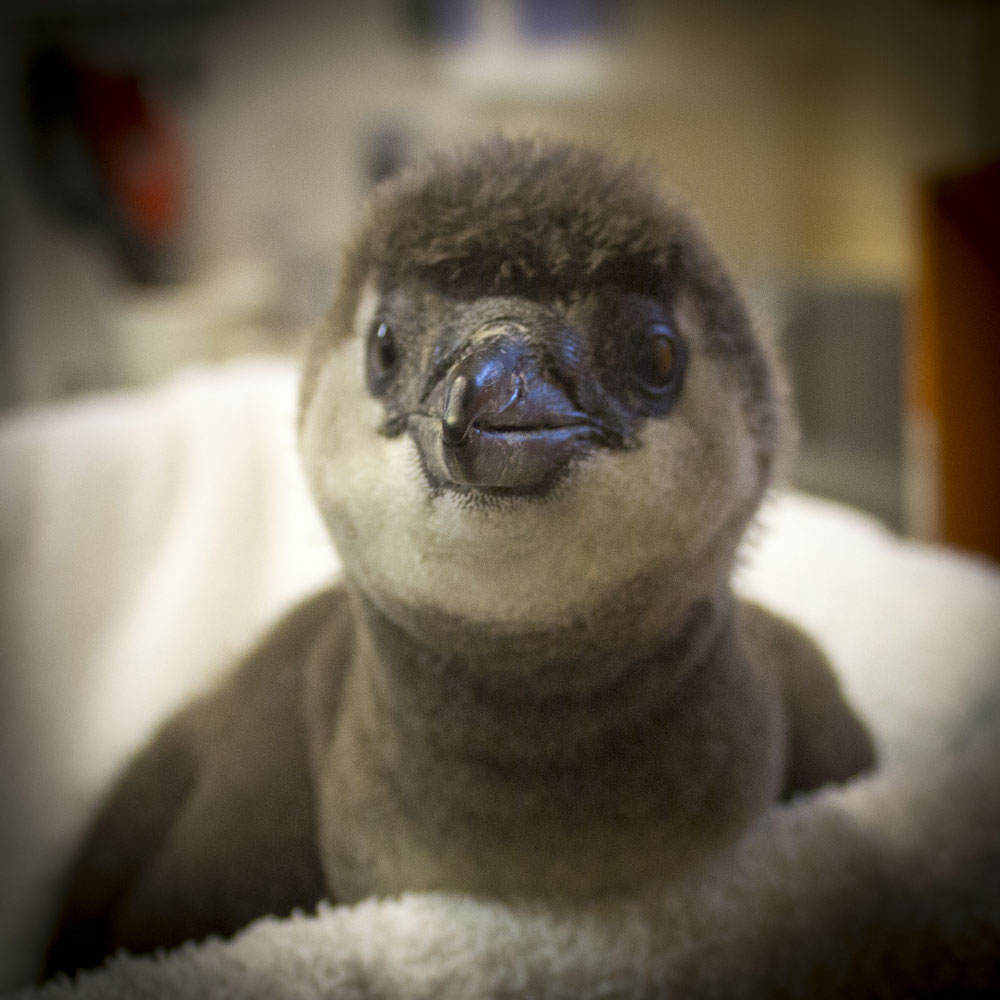County Executive Cheryl Dinolfo and Seneca Park Zoo officials are proud to announce the hatching of the Zoo’s 100th African penguin chick. The chick is the 100th hatched at Seneca Park Zoo in its nearly 20-year history of breeding this endangered species.
“We are thrilled to welcome another penguin to the Zoo and so proud of the monumental conservation achievements that it represents,” said Dinolfo. “Residents should be very proud of the work Seneca Park Zoo is doing as a national leader in the conservation breeding of African penguins.”
The Zoo participates in the Association of Zoos and Aquariums (AZA) African Penguin Species Survival Plan (SSP) as one of the foremost breeding programs in the world. Only three other zoos nationally have hatched 100 or more African penguin chicks in conservation care. Seneca Park Zoo joins the ranks of Maryland Zoo, New England Aquarium and Denver Zoo in this achievement.
“The hatching of the 100th chick at Seneca Park Zoo is an important milestone for our renowned breeding program,” says Larry Sorel, Zoo Director. “It highlights the work we are doing in conjunction with other AZA-accredited zoos and aquariums to save this bird from extinction.”
Of the 100 chicks hatched at Seneca Park Zoo, 68 chicks have been sent to 26 accredited zoos and aquariums across North America as part of the SSP. This program aims to ensure genetic sustainability for this endangered species.
Steven Sarro, Curator at the Smithsonian National Zoological Park and AZA Species Survival Coordinator for African penguins commented: “Seneca Park Zoo has been an integral member of the African Penguin Species Survival Plan for the past 20 years. The dedication to this SSP proves that a smaller zoo or aquarium can have a major impact on conservation work for endangered species, such as the African penguin. We commend them for this milestone and know that we can count on Seneca Park Zoo to do its part in preventing this charismatic species from becoming extinct in the future.”
African Penguins have been designated by AZA as a signature Species for the SAFE (Saving Animals From Extinction) program, underscoring the critical status of this species, and inspiring action from a broad array of supporters and AZA-accredited zoos.
The largest threats to the survival of the African penguin are changes and destruction of habitat and diminishing food sources because of commercial fishing. One of the most distressing forces affecting the survival of these penguins is oil spills.
Scientific knowledge gained from the success of breeding programs in zoos is being used to help assist breeding programs in the natural range of this species, where population decline is due in large part to breeding failure. Zoos across the country have also adopted breeding techniques and strategies documented by Seneca Park Zoo staff with great success in the last 20 years.
Seneca Park Zoo also participates in the conservation of African penguins by partnering with the Southern African Foundation for the Conservation of Costal Birds (SANCCOB), a nonprofit organization with the primary objective of reversing the decline of seabird populations through the rescue, rehabilitation and release of ill, injured, abandoned and oiled seabirds. Fundraising efforts at the Zoo’s Front Gate and at special events have contributed thousands of dollars toward these efforts in recent years.
The 100th chick is named Ikhulu, meaning “one hundred” in Zulu, the most widely spoken language in the species’ native South Africa. Female African penguin Georgia and male Phoenix are the parents of the new chick. It will be closely monitored as it continues to develop.

The Zoo has created a commemorative t-shirt to celebrate this conservation milestone, featuring each of the 100 penguins hatched at Seneca Park Zoo and where they currently reside. A limited number of these unique t-shirts will be available for purchase at the ZooShop while supplies last. T-shirts cost $19.99 and can be purchased at the ZooShop or by calling (585) 336-7203.Photo by Kevin BlakelyLEARN MORE ABOUT PENGUINS








